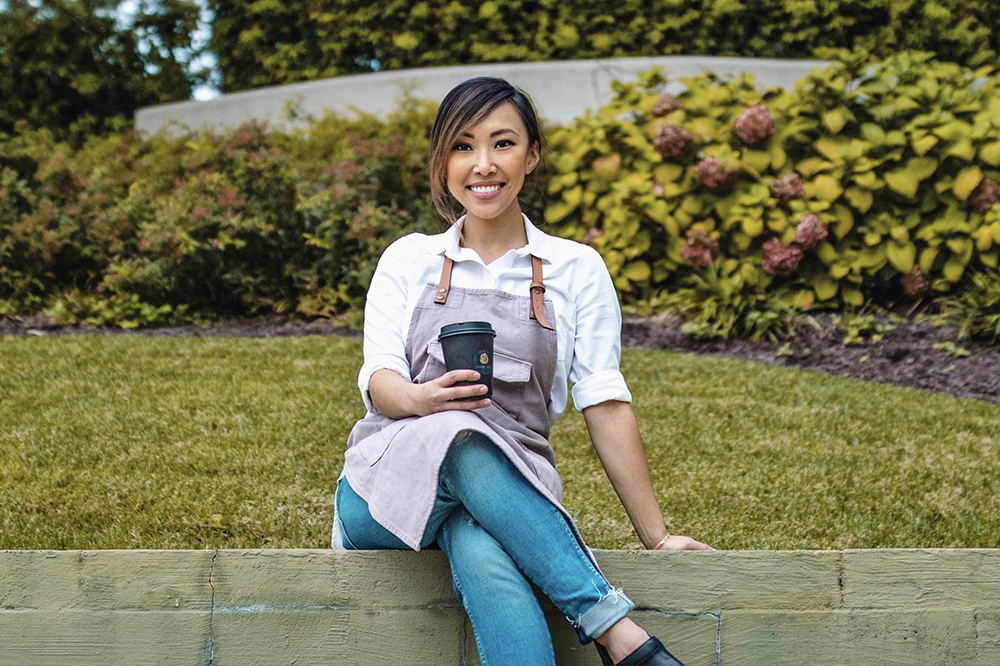Life
 Rosie Nguyen. Photo courtesy of subject.
Rosie Nguyen. Photo courtesy of subject.
The Road Less Traveled: The Asian American Entrepreneurship Experience
May 28, 2021 @ 8:00am
What determines our reality? What are we capable of creating?
Our culture, heritage, upbringing, media and communities affect our subconscious and, thus, what we believe we can achieve. Asian Americans and Pacific Islanders (AAPI) are underrepresented in almost all industries and in executive leadership roles.
A 2012 study from the Pew Research Center reports that Asian Americans are the “highest-income, best-educated and fastest-growing racial group in the U.S.” Yet in a Harvard Business Review analysis, they were found less likely than any other race to be promoted into management. This is known as the bamboo ceiling.
In entrepreneurship, AAPIs are even less represented. When you’re underrepresented in the space you want to explore, it makes it more difficult to take the first step.
For many, pursuing entrepreneurship is a luxury and privilege because of its risks — risks that many children of immigrants may be afraid to take because of the uncertainty. As someone who danced around entrepreneurship for almost 10 years before acknowledging that it’s part of who I am and what I’m meant to do and taking the leap, I know this all too well.
My parents came to the United States to give me a better life, which they defined as a 9 to 5 job. Years ago, when I pursued entrepreneurship full-time, I felt guilt as I gave up the opportunity to make more money than my parents to pursue a dream that had no guarantees. I experienced many fears of failure, disappointment and shame but ultimately knew that this life was something I needed to explore.
Rosie Nguyen, founder of Rose Ave Bakery in downtown D.C., felt similarly when she started her business, which is a little over a year old.
“My biggest fear was that the bakery would be a failure — that my grand ideas would not translate well into the real world and we would be a flop,” Nguyen shares with me. “As big as my fears were, I learned a lot from my food journey and was able to learn from my mistakes. I owed it to myself to at least try my best.”
Sonal Shah, who founded The Om Room in the District, echoes these sentiments when we speak.
“The biggest challenge for me was simply believing that all the pieces were going to come together,” Shah says. “Is it really going to work? I did all of the research and had a very detailed visualization of the concept, but actually taking those first steps to bring it to life — that was the hard part.”
Nguyen’s parents were hesitant about her leaving her stable nursing job, so she kept the day job and worked part-time in food and beverage until she felt ready to make the switch. Starting a business can seem daunting. Where do you start? But just starting is the most important part.
Shah, who sells natural aromatherapy and energy products, says she worried about making that first purchase, figuring out packaging, setting up an e-commerce channel and learning how to ship, among many other tasks. Since these tasks were completely new to her, it was hard to believe she was going to be able to actually pull it off. This fear kept her stuck in analysis paralysis.
It’s easy to get caught up in the minutiae of business before you even start one. The resounding advice from Nguyen and Shah is to just take the first step. From there, you’ll be able to figure things out, but that first leap is always the most difficult. Entrepreneurship is a test in believing in yourself. It’s trusting in your intuition and choosing faith over fear.
“You don’t know what you’re capable of until you try it,” says Amy Chase, founder of The Crescendo Group, a social enterprise working to end domestic violence and sexual assault toward AAPI individuals, and president of ACE NextGen DC, which supports the AAPI entrepreneur community. “You also don’t know what works and what doesn’t until you put it to the test.”
So many people get stuck in this prestart phase. How do you stop thinking and start doing? By connecting with those who are living the life you desire. I reached out to other business owners and surrounded myself with those who were creating and innovating before I started my own business.
When you’re able to see someone who is somewhat relatable (whether it’s their background, culture or race) pursuing a similar dream, it allows you to believe it’s a possibility for yourself. It makes it easier to try something new when you know others have done the same. This is why diversity and inclusivity are crucial across all industries.
“My advice specifically for AAPI women is we need more diversity of ideas, products and leadership in this space,” Chase says. “This is why if an AAPI woman has a business idea, I always encourage her to take the leap. Then I point her to resources such as ACE NextGen, Asian Hustle Network and other like-minded groups.”
If you’re thinking about entrepreneurship, where do you start if you have no idea what you want to do but are curious about creating something? Shah routinely listened to podcast interviews with female CEOs about their journeys, which helped her learn that each of them figured it out along the way. No one was a natural expert at all of these first steps.
“Take that initial step forward toward a goal you’ve always wanted to explore,” Nguyen says. “Learn from the experts [and] make mistakes because it will give you the opportunity to do it better next time. Take many little steps in learning your craft. When it’s time, all those little steps will give you the confidence to take that leap.”
And it doesn’t need to be all or nothing, black or white, full-time entrepreneur or bust. Exploring a side hustle or passion is a great starting point. I had side hustles for years before committing to entrepreneurship full-time. Chase redefines entrepreneurship as the ability to innovate while taking on risks.
“It’s when you’re using your business as an outlet to pursue passions and interests you can’t find in your 9 to 5,” she says.
The most important advice I give to entrepreneurs is to make sure your mindset is working for you rather than against you. It’s easy to get stuck in negative thought loops. Cultivating a growth mindset is crucial to addressing the ups of downs of creating something of your own. Believe in yourself even when others may question your ideas. Your mindset will be the key to your success.
Learn more about Nguyen and Rose Ave Bakery at www.roseavebakery.com. Shop for Shah’s products at www.etsy.com/shop/theomroom. Learn more about Chase and her pursuits at www.thecrescendogroupllc.com and www.acenextgen.org. Follow on Instagram @roseavebakery, @theomroomco, @thecrescendogroupllc and @acenextgen, respectively.
Hu is the founder of Woo Woo Company, a guide to all things woo, spiritual and holistic health. Connect with her via 202-918-3414 to join in on abundance meditation challenges, the “Into the Woo” podcast or [email protected]. She works with clients 1:1 to help them discover their purpose and navigate their Saturn return to live a life beyond their wildest dreams.
Enjoy this piece? Consider becoming a member for access to our premium digital content. Support local journalism and start your membership today.







